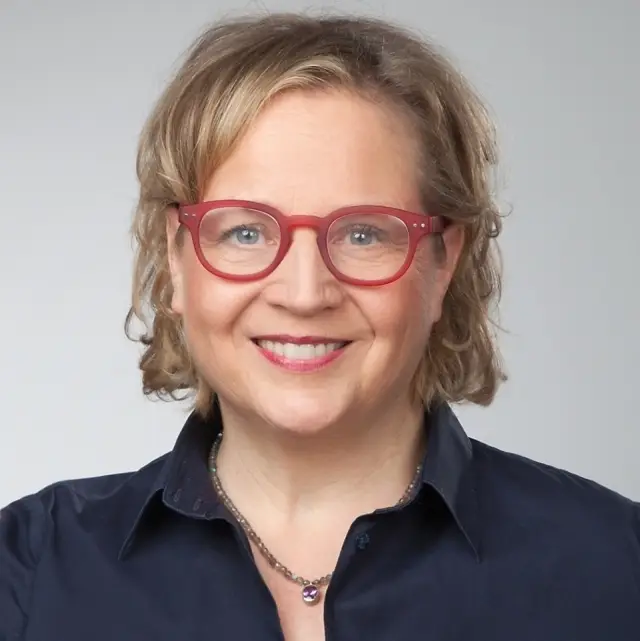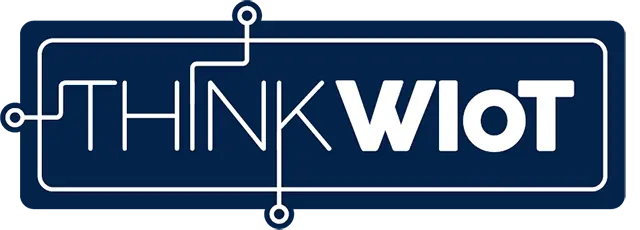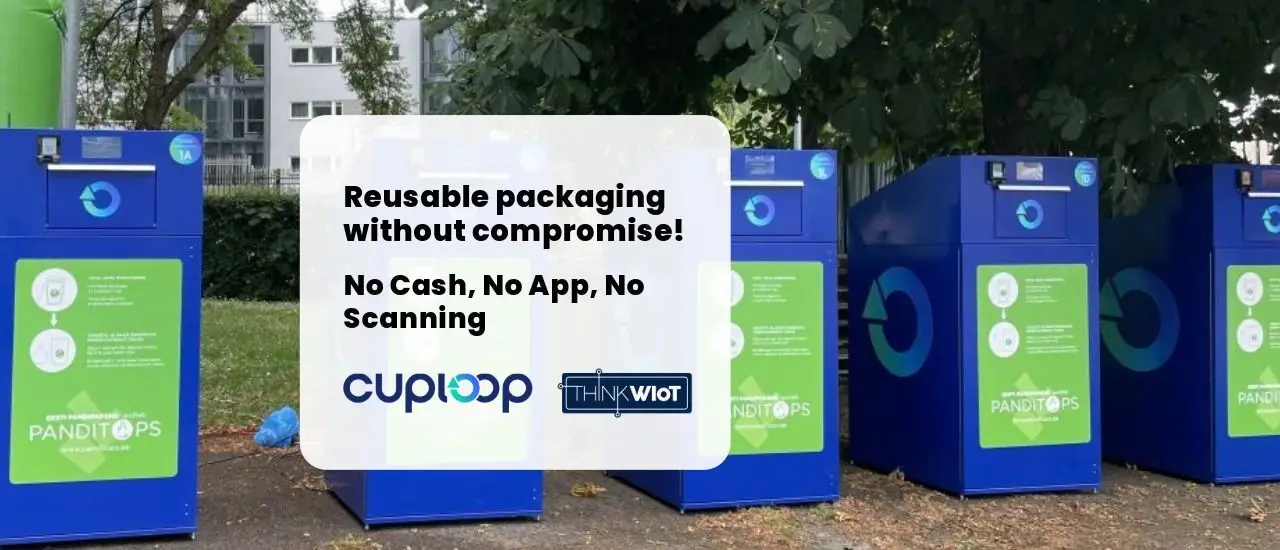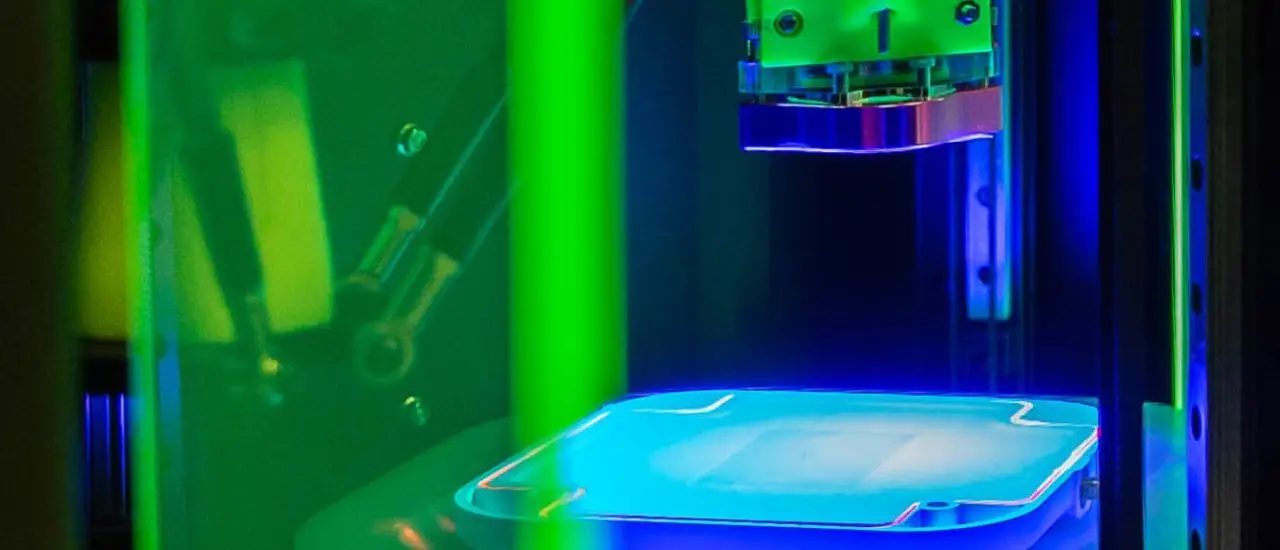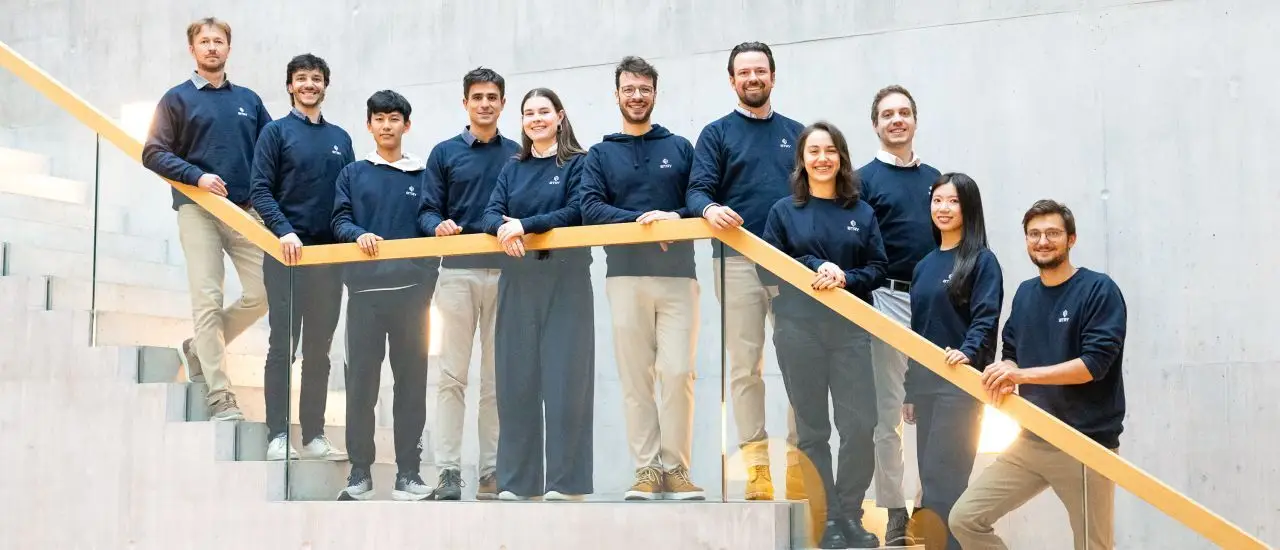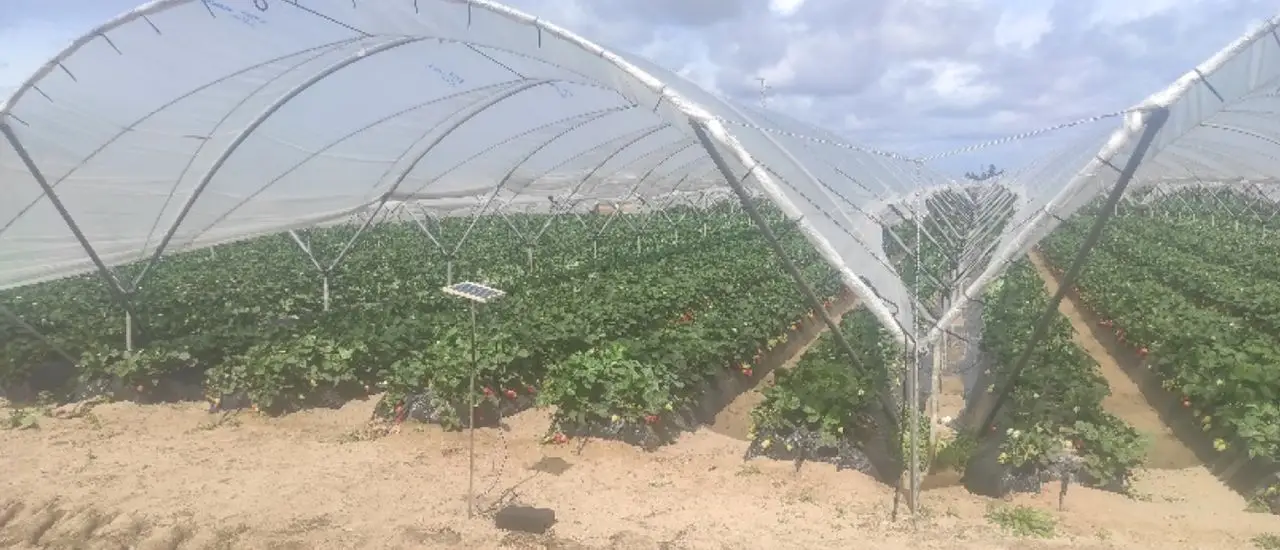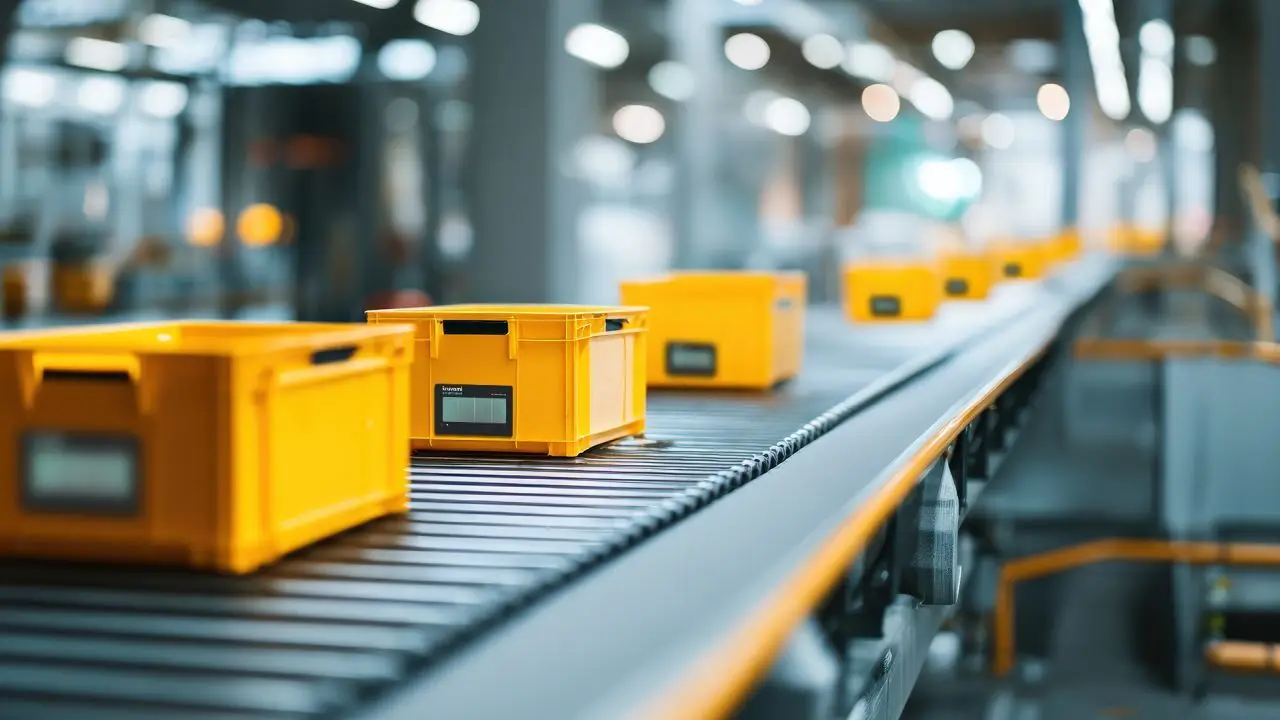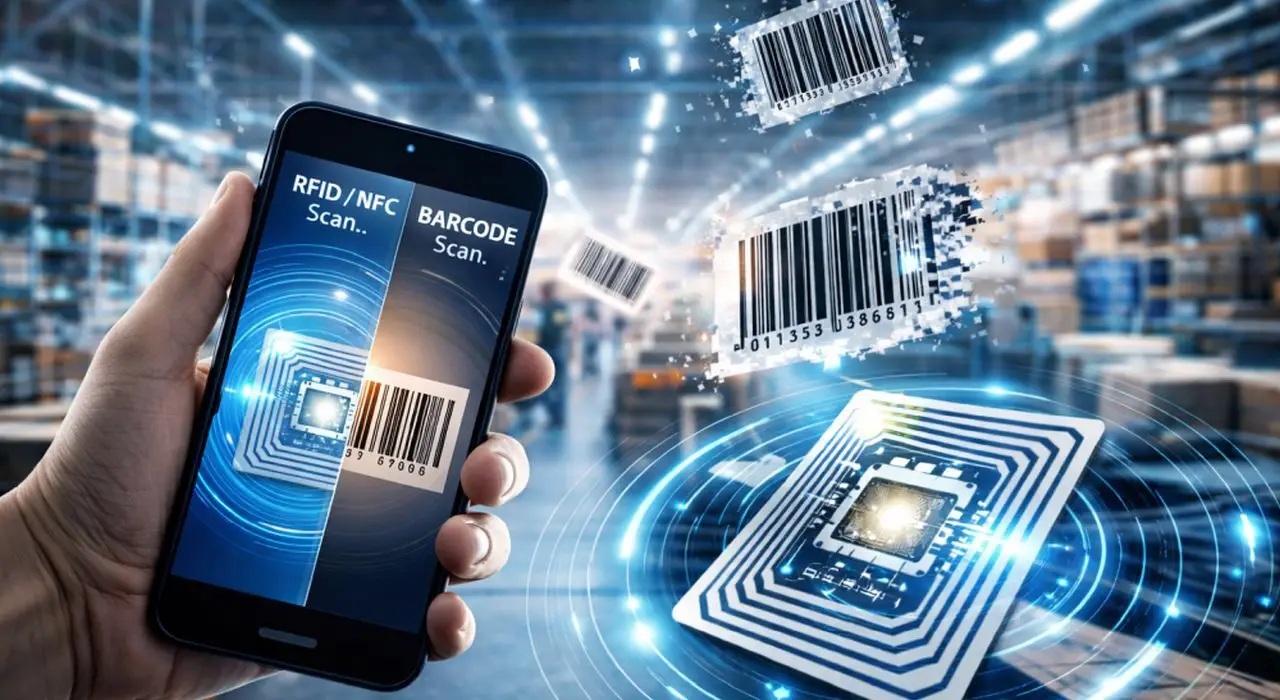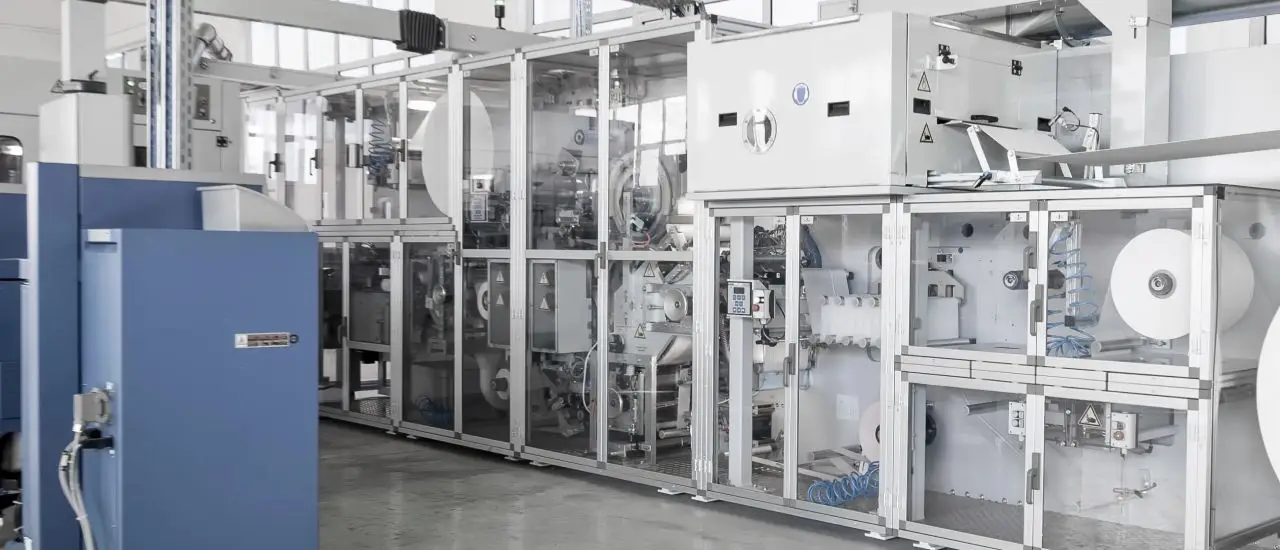- Cuploop kiosks use RFID to detect returned items and refund deposits instantly without cash, apps or QR-code scanning.
- About 15–20 units are currently active at venues including Blenheim Palace and the Eden Project, with more in warehouses for events.
- Security is enforced by activating transponders at sale and deactivating them on return, reducing refund fraud.
- The company offers sticker and embedded tag options, partners with payment processors and RFID suppliers, and secured €2 million in investment to support expansion.
Reusable without compromise: Estonian startup Cuploop has developed an RFID-based kiosk system that radically simplifies the return process for reusable packaging. No cash, no apps - customers get their deposit refunded instantly. Since its first prototype in 2019, Cuploop has become a pioneer in smart return systems. With 20 machines in operation and growing demand due to new EU regulations, Cuploop is becoming a game changer for sustainable packaging.
Whether at festivals, in city centers or at coffee stations, Cuploop kiosks provide a seamless and sustainable solution for returning reusable packaging. Thanks to RFID technology, users receive their deposit refund in seconds - without cash and without the hassle of scanning a QR code.
Maiko Kiis, Head of Marketing at Cuploop, shares insights on recent developments, regulatory implications and future growth plans.
Interview with Maiko Kiis
1. How does the Cuploop kiosk system work?
Maiko Kiis: Our system is radically simple yet technologically advanced. Customers pay a small deposit when they purchase a drink or food item - whether they pay by cash or card. To return the packaging, they simply place it in the hatch of the kiosk.
The system automatically detects the number of items, and the customer simply taps their card or smartphone, while the deposit is refunded almost instantly.
This eliminates the need for cash, cumbersome QR code scanning or app downloads. Unlike other systems, our kiosks can handle a wide variety of packaging - from cups and plates to pizza boxes. Avery Dennison supplies most of the transponders. We also occasionally use tags from Confidex (now Beontag).
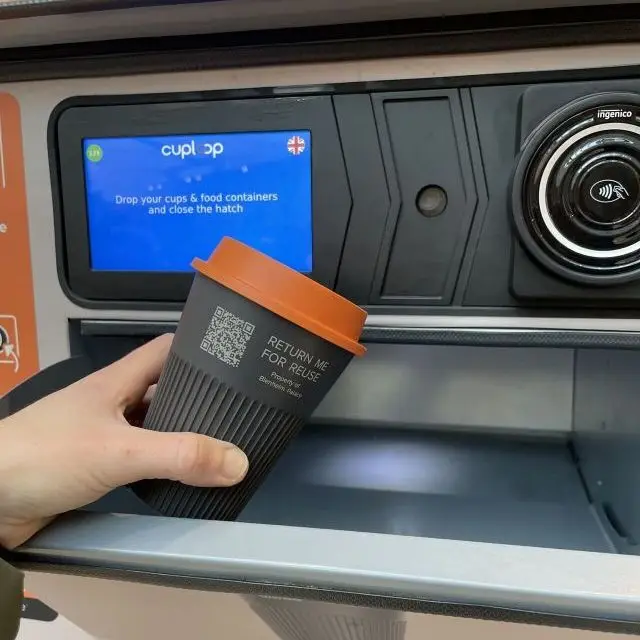
2. How many Cuploop kiosks are currently in operation?
Maiko Kiis: In the UK we have four units - two at Blenheim Palace and two at the Eden Project in Cornwall. There are more in Estonia, but as we work with operators who manage multiple kiosks, the exact number is difficult to determine.
However, we estimate that about 15 units are currently active. And there are many more in the operators' warehouses waiting for events.
But this is just the beginning - with growing demand due to new European regulations, this number will soon increase.
Maiko Kiis - Head of Marketing
The historic Blenheim Palace estate has implemented a digital return system for reusable cups that aims to completely eliminate single-use cups. Developed in partnership with green tech company re-universe, the system was piloted and then implemented across the entire estate.
Visitors pay a £2 deposit on the reusable cup when they purchase a drink, which is refunded when the cup is returned to special machines. Each cup is equipped with a unique QR code and RFID technology that enables seamless traceability and quick refunds.
This system has helped to save approximately 620,000 disposable coffee cups a year, which corresponds to a CO₂ saving of 27 tons per year.
Source: re-universe
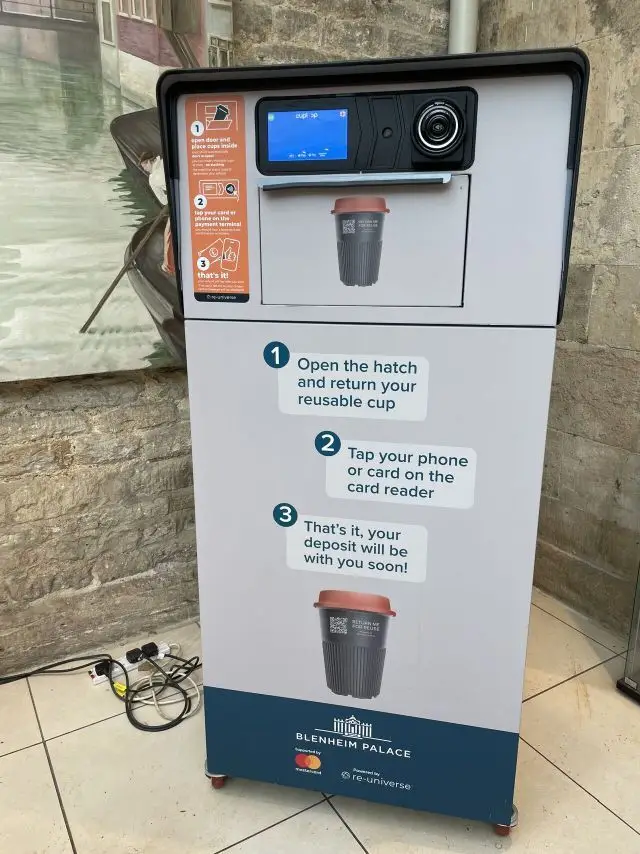
3. How does the payment system work and what security measures are in place?
Maiko Kiis: Our customers can pay by bank card or smartphone. We partner with Shift4 and Switchio by Monet+ for transactions and instant refunds.
Many existing systems rely on QR codes that require customers to scan a sticker and wait for their refund. This can be inconvenient - especially when returning multiple items.
Our system is different: no QR code, no app, no waiting. Customers simply place their items in the kiosk, tap their card, and receive an instant refund.
Plus, our RFID system prevents fraud: Tags are activated at the point of sale and deactivated upon return, ensuring that the same product cannot be refunded multiple times.
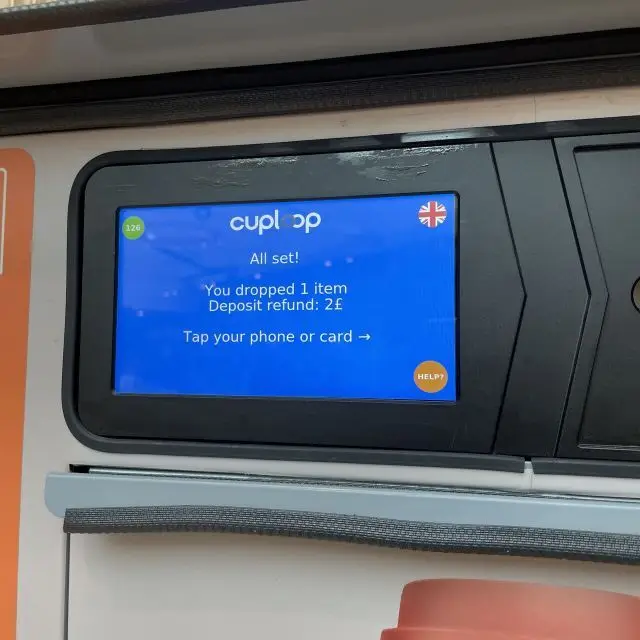
4. Are the RFID tags integrated into the packaging?
Maiko Kiis: We offer two types: embedded RFID tags and stickers. Embedded tags are more durable, safer during washing, and provide additional tamper protection – but they are also more expensive. Therefore, most customers currently opt for sticker-based solutions.
However, we anticipate a shift towards embedded tags in the long term, as they offer greater reliability and longer lifespan.
5. What are Cuploop's goals for 2025?
Maiko Kiis: Our focus is on growth and expansion. We are currently in negotiations with a major theme park – this could be a real breakthrough for us.
Since January, we’ve onboarded a new head of sales, and our partnerships are growing steadily. Projects in the UK, Denmark, and Estonia are already in the pipeline.
Our collaborations with Visa, Mastercard, and Shift4, as well as RFID supplier Avery Dennison, are significantly increasing our visibility and driving the adoption of our solution. Our goal is to establish Cuploop as the standard for reusable packaging returns across Europe.
About Maiko Kiis and Cuploop
Since October 2024, he has led marketing at Cuploop, promoting smart return kiosks for reusable packaging. He is also the founder and CEO of Marketista OÜ, a marketing and grant writing consultancy. In his previous jobs, he specialized in renewable energy and clean technology solutions.
Cuploop is an Estonian startup, founded in 2018, that specializes in developing a smart return system for reusable packaging. The company has developed a kiosk that uses RFID technology to enable the efficient return of reusable cups and containers, as well as the immediate and contactless refund of deposits.
In July 2023, Cuploop secured a €2 million investment led by SmartCap Green Fund, a syndicate of angel investors from EstBAN and Danish advisory and investment firm Footprint Firm. These funds will help to further develop the product and drive the rollout of the system in different cities.
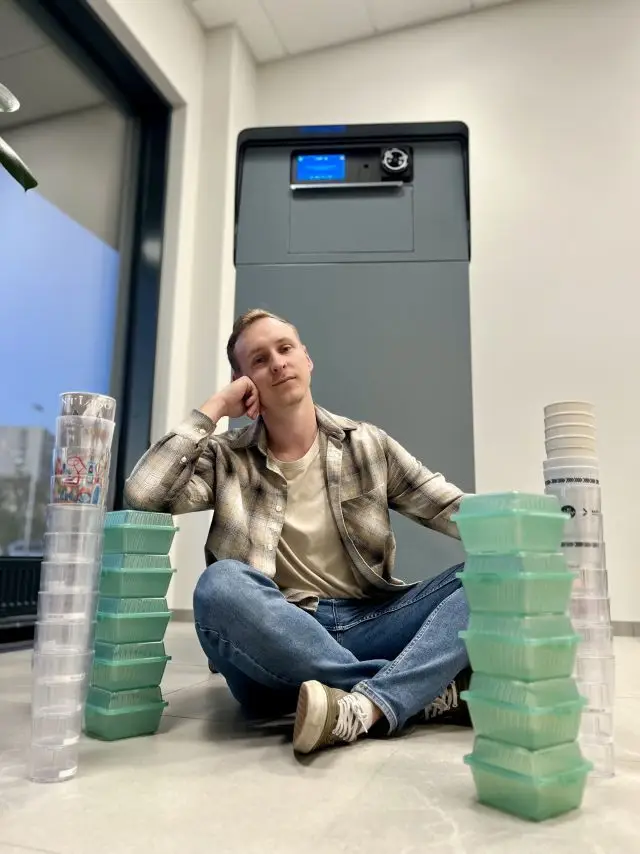

In the Global Startup Ecosystem Index 2024, Estonia ranked 12th globally, with Tallinn rising to the top 10 startup cities in the EU.
Anja Van Bocxlaer - Managing Director
